Mental Health Memes: Laughter as Therapy?
Mental health memes often use humor to shed light on serious wellbeing issues. These memes can offer relatable content that may help in destigmatizing mental health challenges.
Understanding the delicate balance between humor and sensitivity is pivotal, especially when it comes to mental health memes. These visual jokes or quips have become popular on social media as a means to express feelings and thoughts on mental health that might otherwise be hard to articulate.
Utilizing humor, memes have the power to connect individuals through shared experiences, creating a sense of community and understanding around mental health topics. Nonetheless, it’s essential to navigate this space responsibly to ensure that such content remains supportive rather than dismissive of the real struggles people face. Crafting content around mental health requires a careful blend of levity and respect to empower and educate, rather than alienate, those dealing with mental health conditions. This approach helps in building a more inclusive and supportive dialogue around mental well-being.
Introduction To Mental Health Memes
In our increasingly digital world, expressions of emotions and experiences often take a unique form – memes. Mental health memes, in particular, have become a canvas for sharing relatable insights into the struggles and triumphs of living with mental health issues. Before diving into their nuances, let’s unpack what these memes are, their backstory, and how they might even prove beneficial in our collective conversations about mental health.
Understanding Mental Health Memes
Mental health memes are digital images or text, often humorous, which relate to experiences of mental health. They mirror personal narratives and offer a shared space on the internet where individuals connect over similar challenges. Essentially, these memes act as a social currency in the digital sphere, allowing for candid expression and mutual understanding among those navigating mental health issues.
Historical Context And Rise In Popularity
The history of mental health memes is entwined with the evolution of internet culture. Originally meant for entertainment, memes gradually became a tool for social commentary. Their surge in popularity can be linked to the wider acceptance and discussion of mental health online. As conversations grew more open, memes became a dynamic and accessible way for individuals to articulate their experiences and find community support.
Examining The Therapeutic Claims Of Humor
- Humor as a coping mechanism: Laughter is known to release endorphins, combat stress, and improve mood.
- Relatability and acceptance: Finding humor in shared struggles can foster a sense of belonging and reduce feelings of isolation.
- Conversations starters: Humorous depictions of sensitive topics can make it easier to initiate discussions about mental health.
It’s crucial to note that while mental health memes can offer temporary relief and community bonding, they are not a substitute for professional help. The therapeutic value is largely individual and subjective; what might serve as a lighthearted escape for one person could be triggering for another. Therefore, understanding one’s boundaries and the impact of such content is essential.
The Psychology Behind Humor And Mental Health
Mental health is a complex and multifaceted subject. Yet, in the midst of expert analyses and prescribed therapies, humor emerges as an intriguing tool for well-being. Laughing at a mental health meme may seem trivial, but it can pack a punch for psychological resilience. Understanding the relationship between humor and mental health isn’t just about the laughs; it’s a window into how people cope, bond, and find relief from life’s stresses.
Theories Of Humor In Psychological Research
The study of humor has always been a puzzle for psychologists. Various theories attempt to explain why we find things funny and how this affects our mental state. Here are a few standout perspectives:
- Superiority Theory: This age-old concept suggests that humor arises when we feel a sense of superiority over others.
- Incongruity Theory: Introduced by philosopher Immanuel Kant, this theory proposes that humor stems from the inconsistency between our expectations and reality.
- Relief Theory: Sigmund Freud supported the idea that humor is a way to release pent-up nervous energy and psychological tension.
Humor As A Coping Mechanism
Humor operates as a robust coping mechanism, providing a shield against the slings and arrows of life’s challenges. It’s not just about cracking a smile; it’s about the following nuances:
- Offering a new perspective that makes a problem seem more manageable.
- Facilitating social connections by sharing a laugh reduces feelings of isolation.
- Allowing a temporary escape from distress, serving as a healthy distraction.
Acceptance through humor can also lead to a greater sense of mastery over one’s circumstances, demonstrating resilience in the face of adversity.
Effect Of Laughter On Brain Chemistry
Laughter isn’t merely a visible indicator of joy; it can propel a chemical ballet within the brain that promotes a better mood. Some of the key chemicals include:
| Chemical | Role in Brain Function |
|---|---|
| Endorphins | Boost pleasure and relieve pain, generating a sense of well-being. |
| Dopamine | Contributes to the feeling of satisfaction and pleasure, often referred to as the ‘reward’ chemical. |
| Serotonin | Regulates mood, anxiety, and happiness, often associated with depression when levels are low. |
Understanding the laugh-triggered chemical cascade provides insight into why a simple mental health meme can lighten our load and brighten our day.
Potential Benefits Of Mental Health Memes
In the digital age, mental health memes have surged in popularity, becoming a unique bridge between humor and emotional well-being. They are no ordinary jokes; these memes serve as powerful vessels, conveying messages about mental health in ways that are relatable, accessible, and comfortingly humorous. Not only do they reflect individual experiences, but mental health memes also carry potential benefits that touch on community building, stigma reduction, self-expression, and emotional healing. Below, we delve into the key advantages of embracing mental health memes.
Building A Community And Reducing Stigma
Mental health memes play a crucial role in crafting a sense of solidarity among those who encounter the challenges of mental illness. By sharing a laugh about their experiences, individuals can feel less isolated and more understood.
- Connection over shared experiences – Memes often portray common mental health struggles, fostering a connection among those who relate.
- Breaking down barriers – When memes go viral, they can reach a wide audience, sparking conversations and breaking down societal barriers that often surround mental health topics.
Normalization of mental health struggles through relatable humor – By seeing representations of their struggles in meme form, individuals may feel a sense of normalcy in their experiences, which can reduce stigma.
Self-expression And Emotional Release
Sharing memes can be a form of self-expression for those who may find it challenging to articulate their mental state through traditional means. Memes often capture the complexity of emotions in non-threatening, abstract ways.
- Facilitating dialogue – Memes can be conversation starters, helping people to open up about their mental health in a less confrontational manner.
- Playful coping mechanism – Using humor, individuals can cope with their mental health in a way that lightens their emotional load.
Fostering A Sense Of Belonging And Understanding
Mental health memes provide a unique space where individuals can find mutual understanding and a sense of community. This shared laughter over similar challenges promotes a feeling of inclusion and mutual support.
- Highlighting common ground – The universal language of memes can shine a light on how widespread certain feelings and experiences are, helping people see that they are not alone.
The validation offered by memes – When someone stumbles upon a meme that resonates, it can validate their feelings, thus enhancing their emotional well-being.
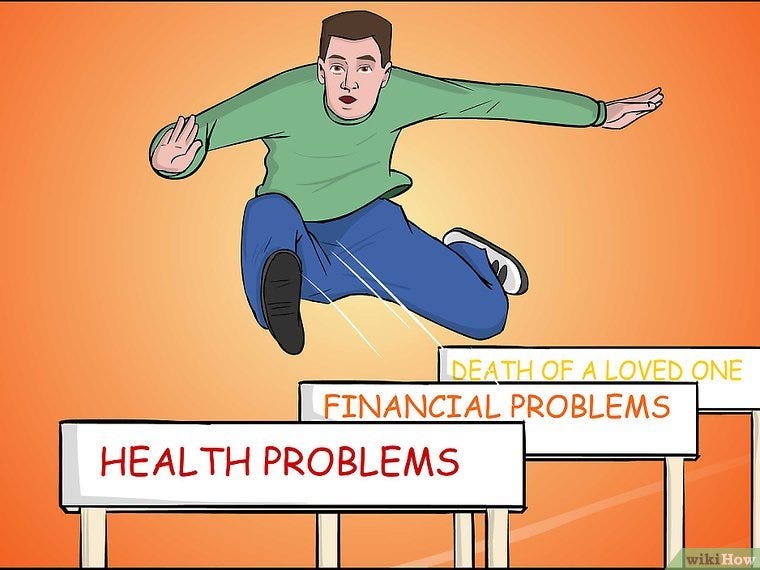
Credit: onezero.medium.com
Criticism And Limitations Of Mental Health Memes
Mental health matters significantly, but when memes enter the conversation, it paves the way for lively debate. Mental Health Memes often straddle a fine line, offering relatability and laughter to some while potentially causing harm or misunderstanding to others. This section delves into the criticisms and limitations that accompany the use of mental health-related memes, highlighting concerns that are crucial to consider in responsible discourse.
Trivializing Serious Mental Health Issues
One significant concern is the tendency of memes to oversimplify complex conditions. When mental health disorders are reduced to punchlines, the gravity of these issues can be severely diminished. For individuals grappling with these conditions, memes might convey a dismissive attitude towards their lived experiences, potentially undermining public understanding of such serious matters.
Risks Of Misinformation And Stereotyping
- Inaccurate portrayals: Capturing mental health concepts in a single frame can lead to simplifications that stray from medical accuracy.
- Spreading stereotypes: Memes often bank on common perceptions, which can perpetuate harmful stereotypes about those with mental health challenges.
- The impact on public perception: Over time, repeated exposure to such content can shape misguided views on mental health issues.
The Fine Line Between Humor And Insensitivity
Humor’s therapeutic potential is undeniable, yet memes can cross into insensitivity, impacting individuals who feel mocked or belittled by the content. Striking a balance remains a challenge in this medium, with its potential to both connect and alienate audience members.
Responsible Creation And Sharing Of Mental Health Memes
Mental health memes have emerged as a popular way to create dialogue and provide communal solace in the often-taboo subject of mental health. While they can bring humor to the conversation and help individuals feel less alone in their struggles, the responsible creation and sharing of these memes is critical. They have the potential to both ameliorate and exacerbate mental health issues, making it imperative that content creators and sharers proceed with mindfulness and sensitivity.
Ethical Considerations In Meme Culture
The growing prevalence of mental health memes necessitates a discussion on ethical considerations within meme culture. The intent behind creating and disseminating such content should aim to support, not mock or marginalize, individuals dealing with mental health struggles. Content creators must diligently assess the potential impact of their creations, avoiding stereotypes and stigma that can be damaging to the broader mental health discourse.
Best Practices For Content Creators
For those crafting mental health memes, embracing best practices is essential. A thorough approach includes:
- Educating themselves about mental health issues to inform their content.
- Maintaining respect for all individuals’ experiences.
- Ensuring messaging aligns with positive reinforcement rather than negative reinforcement.
- Implementing content warnings where appropriate to prepare viewers for sensitive topics.
The Role Of Social Media Platforms In Regulation
Social media platforms play a cardinal role in the regulation of content, including mental health memes. These entities have the responsibility to create environments that are safe and inclusive. By employing automated filters, offering reporting tools, and instituting clear community guidelines, these platforms can foster the responsible sharing of such content. Additionally, the promotion of resources and support for users impacted by mental health memes should be a continued focus.
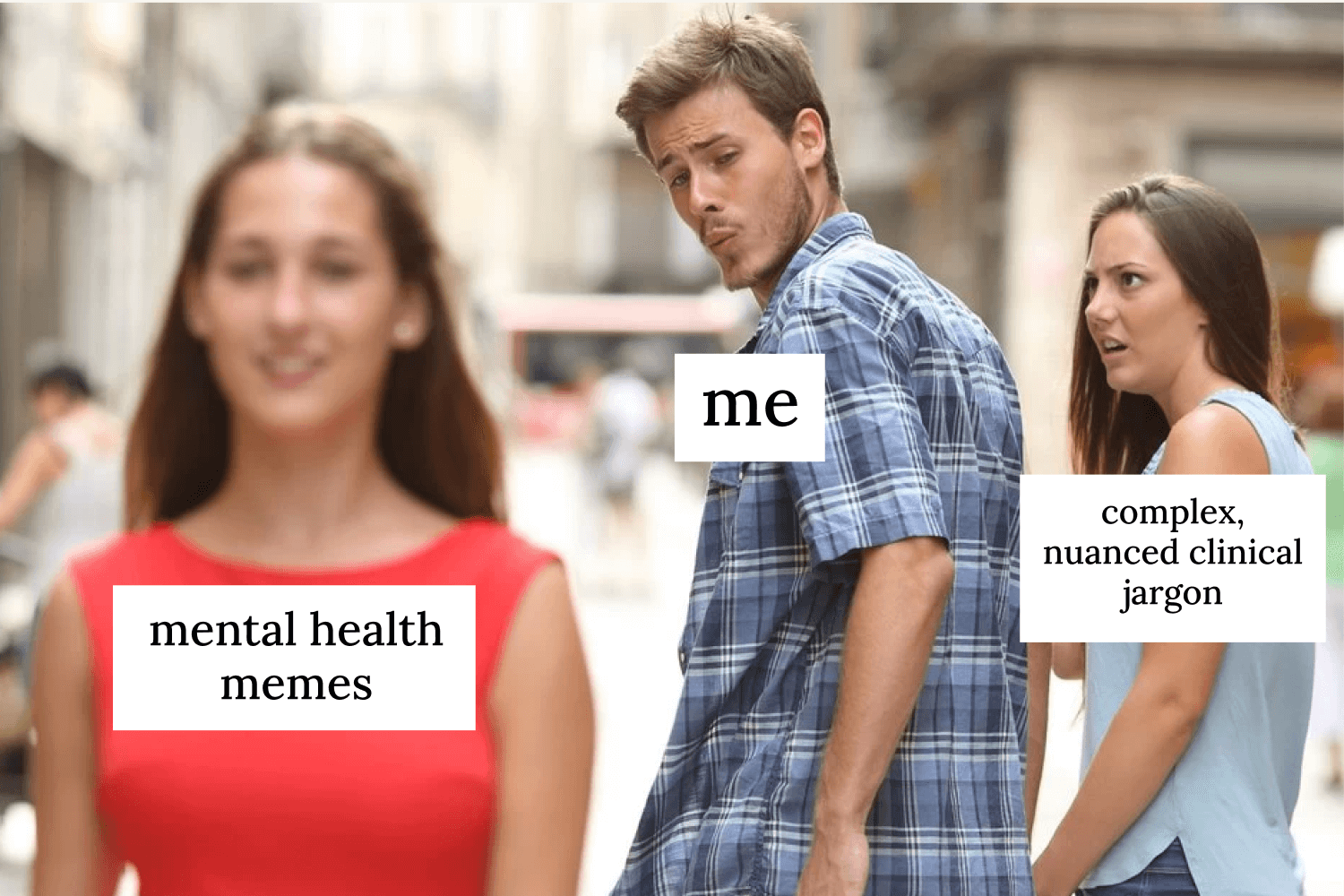
Credit: meetmonarch.com
Conclusion: Embracing Memes As Part Of A Larger Conversation
Mental health memes have surged in popularity, presenting a unique blend of humor and social commentary on sensitive topics. These visual quips offer more than a chuckle—they often serve as an entry point to deeper conversations about mental well-being. By highlighting the therapeutic value of laughter and acknowledging shared experiences, memes can play a role in destigmatizing mental health issues. Embracing such memes within discourse doesn’t undermine the seriousness of mental health; rather, it invites a broader audience to engage with the subject in a relatable way.
Future Directions For Research And Awareness
As mental health memes carve their space within digital cultures, researchers see new avenues to explore their impact on public perception. Scholars are actively examining how memes can influence mental health discourse and potentially serve as an informal barometer for societal attitudes. Moving forward, interdisciplinary studies involving psychology, media sciences, and social networking can yield insights on harnessing meme culture for positive change. It’s imperative that future explorations underscore the importance of sensitivity and accuracy, ensuring memes contribute constructively to mental health awareness.
Integrating Humor Into Conventional Therapy
Humor has long been a mainstay in therapeutic settings, and incorporating memes could modernize and enhance this approach. Clinicians are beginning to acknowledge the role of memes in facilitating communication with clients, especially younger demographics more attuned to internet culture. Innovative interventions might include meme-based activities to foster engagement and provide a shared language for expression. This integration could support traditional methods, offering clients a diversified toolset to express and work through complex emotions.
Community And Policy Implications
- Inclusivity in mental health dialogues ensures that diverse voices find representation through relatable content like memes.
- Engagement through memes can encourage policy-makers to adapt more culturally relevant mental health initiatives that resonate with the public, especially the youth.
- Meme-centric campaigns can amplify outreach efforts, potentially galvanizing community support and shattering the stigma associated with mental health discussions.
The humble meme, often disregarded as frivolous, carries undeniable weight in shaping online and offline conversations. It hints at the possibility of a future where policy development intersects with digital culture to create environments more attuned to the nuanced needs of mental health advocacy.
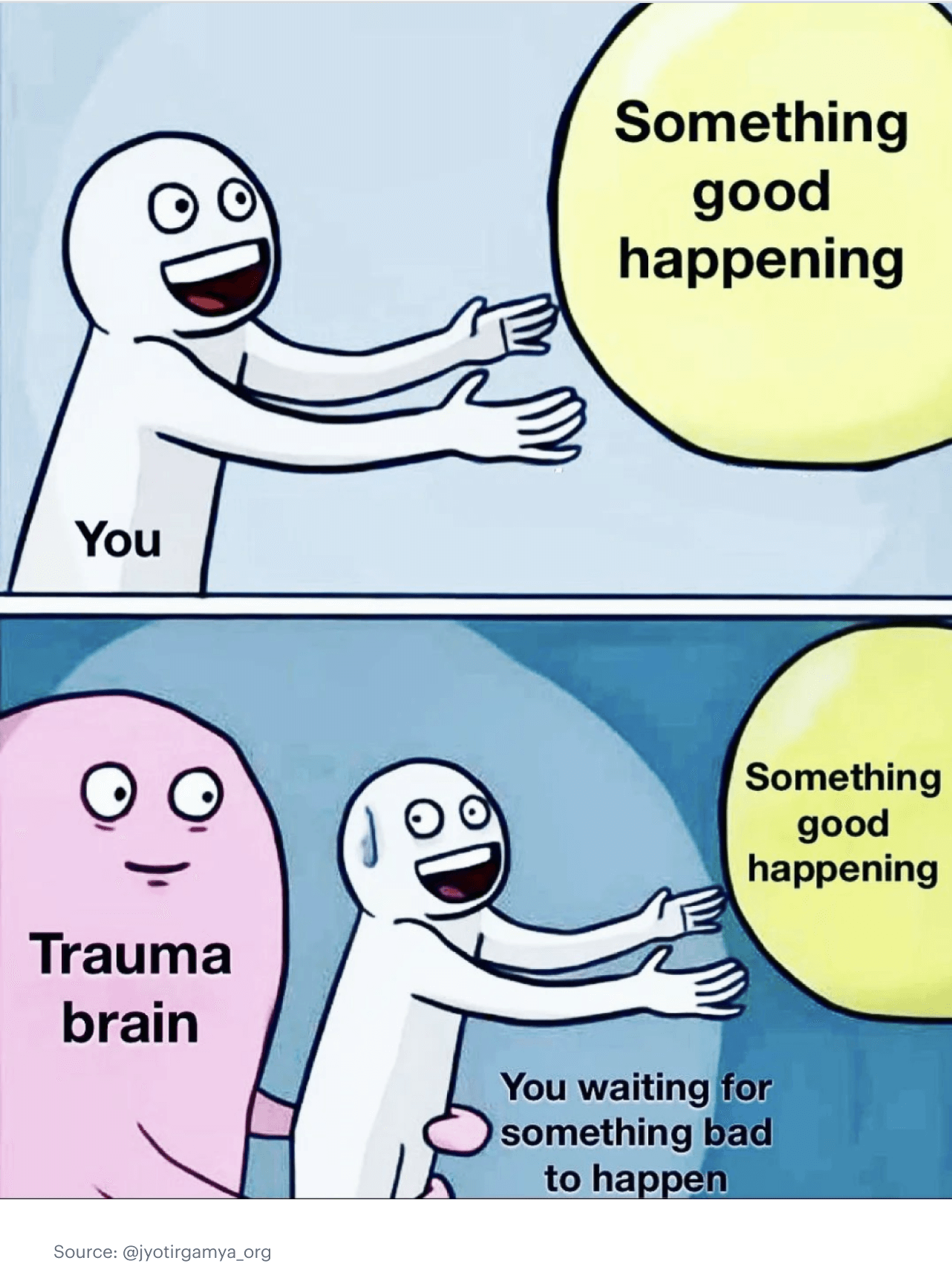
Credit: meetmonarch.com
Frequently Asked Questions Of Mental Health Meme
How Can Memes Impact Mental Health?
Memes often provide humor and a sense of community, helping to alleviate stress and promote positivity. When people relate to humorous content, it can be a form of emotional release, potentially improving one’s mood and mental well-being. However, the context and type of meme are crucial, as some may perpetuate stigma or negative sentiments.
What Are Mental Health Awareness Memes?
Mental health awareness memes are images or texts with lighthearted humor intended to spread knowledge about mental health issues. They aim to reduce stigma, encourage discussions, and make the topic more approachable. These memes can facilitate shared understanding and support among individuals dealing with mental health challenges.
Are Mental Health Memes Effective For Therapy?
Memes are not a substitute for professional therapy but can complement therapeutic practices by promoting engagement and normalizing mental health struggles. They can act as conversation starters or provide clients with relatable content that can make therapy concepts more digestible.
However, their effectiveness varies among individuals.
Do Memes Help In Stress Reduction?
Yes, memes can act as a mini-escape, offering a quick laugh that may temporarily distract from stress. Laughing prompts the body to release endorphins, the body’s innate mood-boosting substances. However, memes should be part of a broader stress management strategy rather than the sole method of coping.
Conclusion
Laughter truly is a balm for the soul, and the power of mental health memes should not be underestimated. They offer a shared experience that can lighten our burdens and foster a sense of community. Remember, sharing a smile over a clever meme is more than just a momentary chuckle—it’s a step toward breaking down the barriers of mental health stigma.
Keep laughing and sharing responsibly.

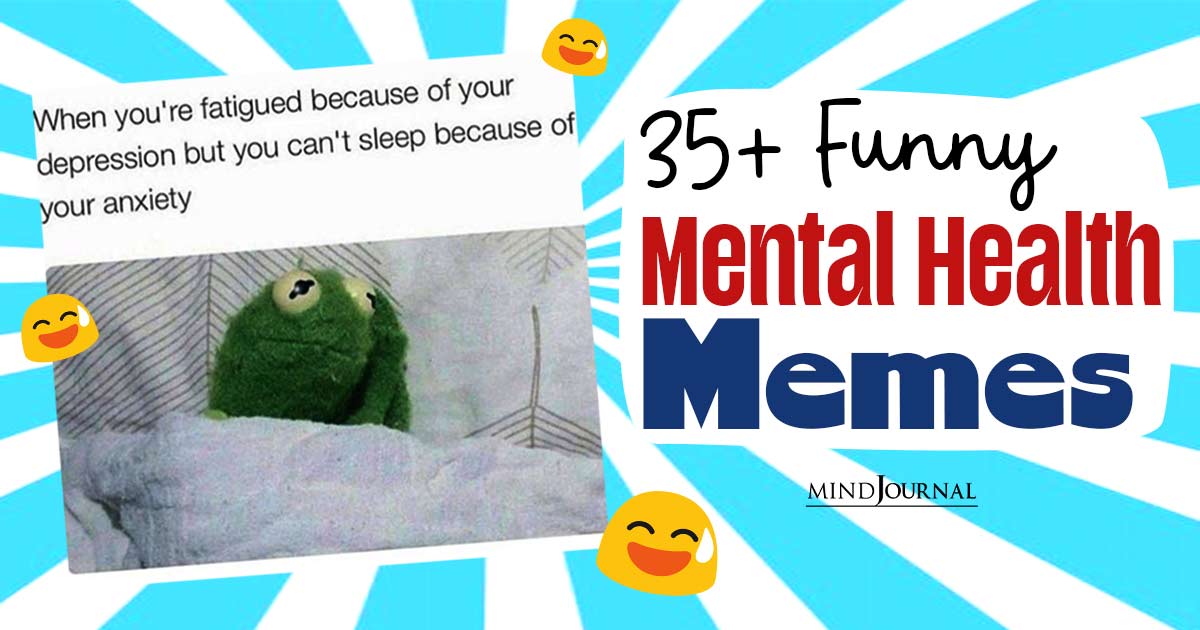

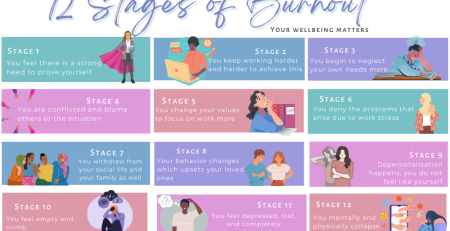


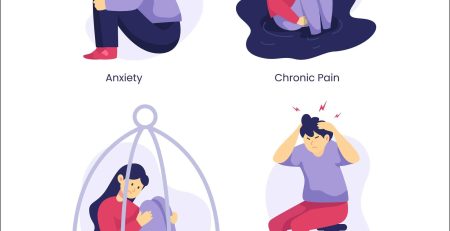

Leave a Reply